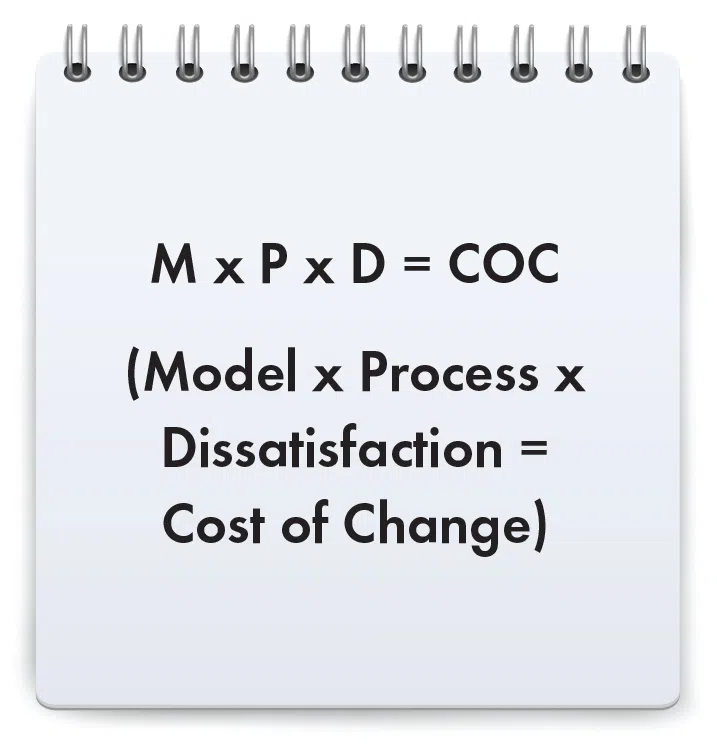It's important that you don't create unrealistic expectations.
In the first two parts of How To Hire Co-Workers, I wrote that when considering a hiring decision, a series of three meetings is recommended: the get-acquainted meeting, the interview meeting and the mutual-hiringdecision meeting. Assuming there is still an interest with both parties after the interview meeting, we’re now ready for the mutual-hiring-decision meeting.
(The first two articles in this series, published in February and April, can be viewed at www.hvacrbusiness.com/ smith. You also might want to revisit my columns from January and February 2007, which dealt with recruiting — the first step in staffing.)
Remember, hiring is much different than recruiting. Recruiting is the practice of getting people interested in working for your company. This current three-part series on hiring, the second step in staffing, is about the practice of convincing people that your company is the one they should choose as their place of employment.
Let’s assume you’re hoping to hire a high-performing service technician — the type of candidate that’s extremely competent and has a great attitude. This is the “Michael Jordan of service technicians.” All five reports you gathered: the application, technical test, driving record, background report and behavioral characteristic profile have checked out perfectly. This person could go to work in most any company and start tomorrow. It is clear after the two previous meetings this candidate does not need to convince you he can do the job — you need to convince him that your company is where he should be employed.
You can expect to be asked early in this meeting “What does this job pay?” If you answer “$28 per hour,” you have probably already lost the candidate’s attention because the candidate may already be making $28 per hour or even more.
So how do you address this question? I recommend this answer: “How ever much you wish to make.” This may prompt another question, “What do you mean by that answer?” You need to explain that your company’s wages and benefits are equal to or exceed other hvacr companies in the area. But in addition to the hourly wage, coworkers can earn significant spiffs by selling service agreements and accessory items as well as turning in replacement equipment sales leads. And they can even get paid spiffs for co-workers they introduce to the company that are interviewed and hired.
By further explaining how additional money can be earned, you actually allow the co-worker candidate to build his or her own projected total compensation. Continue the exercise with a hypothetical scenario between the two of you:
You say: Let’s imagine you run an average of six service calls a day. I’ve already explained our service-agreement program along with the pricing, the high-quality precision tune-ups we provide, the customers’ benefits, the attractive document we use and how, with our service flat-rate manualsz we can clearly show the customer that we provide a 15% discount on the repair that you just completed should the customer invest in a service agreement.
Now ask: Out of the average of your six daily service calls, how many of those customers do you believe would invest in a service agreement? My experience has been that they will normally answer three or four.
Now ask: Of those six average daily service calls, how many customers do you believe would allow you to arrange for a comfort consultant to come to their home and make a presentation on a new replacement equipment system — regardless of whether or not the customer decides to invest in the system?
Their response to this question is normally one or two. Ask the same question about them getting a sale on your system- enhancement products (system enhancements is my term for what is commonly called accessories). Assuming you have a variety of these products available, as you should, the normal response to this question is that they would sell one or two a day from the six opportunities.
Here is how I personally sum it all up: Our company’s service agreements are available for one, two or three years. Considering all first-time service-agreement customers, the average agreement is 1.5 years. Many customers in this area have two or more systems in their homes. Let’s assume all of your new serviceagreement customers have an average of 1.5 systems. We pay $10 per system and $10 per year. You projected three or four sales. Using the lower number of three sales multiplied by 1.5 years each multiplied by an average of 1.5 systems each you would earn an average of $67.50 per day in service-agreement sales.
For replacement equipment presentations, we pay $40. You estimated one or two customers per day would allow a comfort consultant to come to their home. Using the lower number of one, you would earn $40 per day. You also estimated that you would sell one or two system-enhancement products per day. Using the lower number of one sale multiplied by the average spiff amount of $30, you would earn another $30 a day.
Add it up: Using your projections, actually the lower number of your projections, you would earn through spiffs an average of $137.50 a day. I’m being careful and cutting it in half — meaning a more realistic average answer of $68 per day, or $8.50 per hour. On top of your spiff earnings, whatever they are, you will earn wages of $28 per hour.
This is the time for you to be silent. The technician candidate will do the addition and realize he has the potential to earn $36.50 per hour. It is very important that you do not create unrealistic expectations. Keep in mind that they will probably be optimistic in their responses. It’s most often appropriate to reduce the expectations as I did in this example. Happy hiring!
Ron Smith is a well-known leading authority in the hvacr industry. A very successful contractor, franchisor, consultant and consolidator, he has owned or co-owned 14 businesses — a true entrepreneur. His best selling and highly acclaimed book HVAC Spells Wealth can be seen and ordered at www.ronsmithhvac.com or phone 615-791-8474.




.webp)
